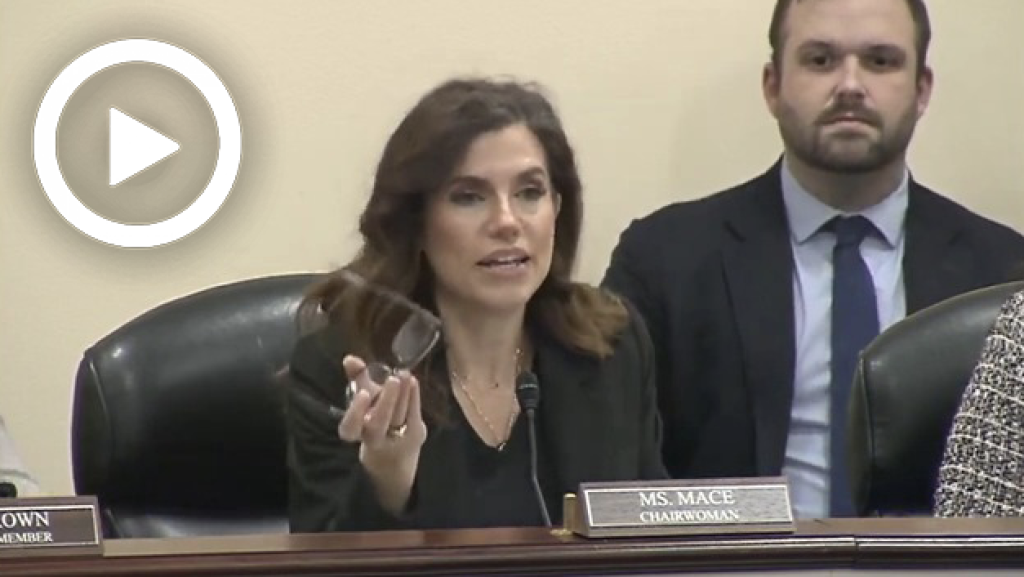Mace Opens Hearing on Oversight of Taxpayer Funded Animal Cruelty
WASHINGTON—Subcommittee on Cybersecurity, Information Technology, and Government Innovation Chairwoman Nancy Mace (R-S.C.) delivered opening remarks at a subcommittee hearing titled, “Transgender Lab Rats and Poisoned Puppies: Oversight of Taxpayer Funded Animal Cruelty.” In her opening statement, Subcommittee Chairwoman Mace highlighted how the Biden-Harris Administration spent millions of taxpayer dollars on cruel and unnecessary animal testing research. She continued by emphasizing that recently developed technological tools can more accurately model human biology and identify solutions that are more useful for human patients, but the federal bureaucracy has blocked novel advancements from being utilized. She closed by thanking the witnesses and looking forward to a robust conversation regarding wasteful government spending on animal cruelty.
Below are Subcommittee Chairwoman Mace’s remarks as prepared for delivery.
Good afternoon.
Late last year the White Coat Waste Project exposed that more than $10 million dollars in taxpayer funds were spent creating transgender mice, rats, and monkeys.
These DEI grants funded painful and deadly transgender experiments that forced lab animals to undergo invasive surgeries and hormone therapies at universities across the country.
For example, the Biden-Harris Administration spent $2.5 million taxpayer dollars to study the fertility of transgender mice.
$1.1 million dollars were spent to find out if female rats receiving testosterone therapies to mimic transgender men were more likely to overdose on a party drug commonly used in the LGBTQ community to induce drug-fueled “chemsex.”
Federal funds were also used to forcibly transition male monkeys to see if hormone therapy made them more susceptible to HIV.
The Biden-Harris Administration was so eager to propagate their radical gender ideology across all facets of American society that they did not pause to consider that such experiments are not only cruel, but unnecessary.
Monkeys cannot be infected with HIV. Yet this federally funded experiment forced them to take hormone-altering drugs to study a virus they cannot have.
It is well known that because of the differences between animal and human biology, animal testing frequently does not produce results relevant for humans.
In fact, 90 percent of novel drugs that are successful in animal tests fail in human clinical trials.
Today’s scientific questions are so complex that we have well surpassed a time where it is useful or appropriate to rely on inhumane animal experiments to answer them.
Recently developed technological tools can more accurately model human biology and identify solutions that are more useful for human patients.
But it is often the federal bureaucracy that prevents these new technologies from being used.
Instead of adequately investing in these innovative alternatives, the Federal government has continued to funnel taxpayer dollars towards cruel animal experiments.
Today, most of the twenty-seven NIH institutes and centers conduct or support animal testing—as does the Food and Drug Administration, the U.S. Department of Agriculture, the Department of Veterans’ Affairs, the Department of Defense, and countless agencies.
In fact, the U.S. government spends in excess of $20 billion every year conducting experiments on animals.
The White Coat Waste Project found in 2021 that the National Institute of Allergy and Infectious Diseases, a component of NIH at the time ran by Anthony Fauci, spent $1.68 million force feeding toxic drugs to beagle puppies between 6 and 8 months old before dissecting and killing them.
The conversation we’re having today is important.
In 2022—due to public criticism lobbied against Fauci’s NAID by me and other members of Congress—another $1.8 million dollar experiment to abuse beagle puppies in various drug tests was cancelled.
I hope today’s conversation can similarly prevent taxpayer dollars from needlessly funding animal experimentation.
Thanks to one of our witnesses, Justin Goodman of the White Coat Waste Project, we have in the audience beagles that were rescued from an NIH lab supplier.
These beagles are a reminder of the real cost of animal experimentation.
I am looking forward to our conversation this afternoon regarding wasteful government spending on animal cruelty and yield to Ranking Member Brown for her opening statement.
